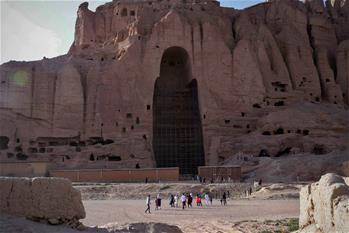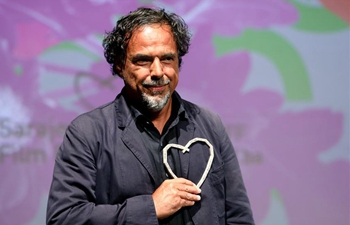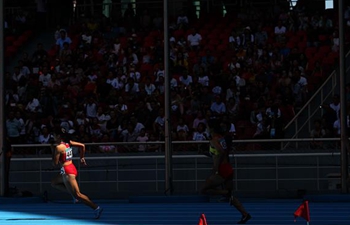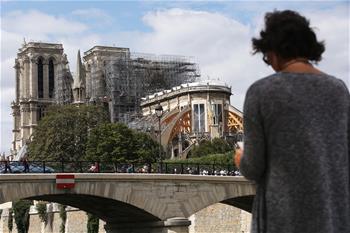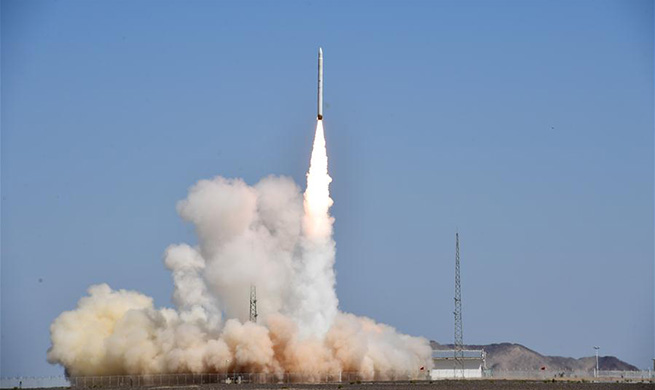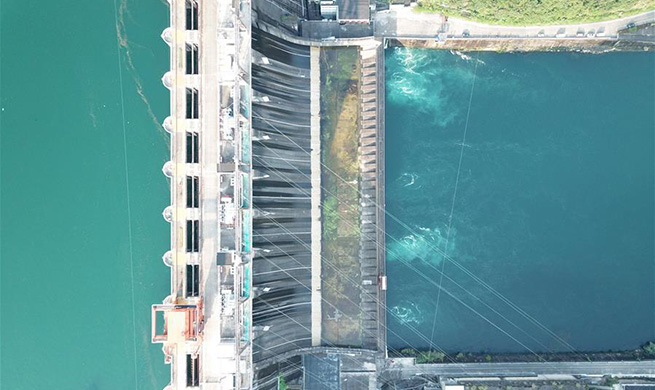ISTANBUL, Aug. 17 (Xinhua) -- Turkey's unusual silence on the latest Syrian army advance in the rebel stronghold of Idlib reveals its helplessness and the wish to keep ties with Russia unharmed amid differences with the United States over a proposed safe zone in Syria, analysts told Xinhua.
Faruk Logoglu, a former senior diplomat, attributed Turkish helplessness to the country's previous wrong policy moves in Syria.
The Syrian army, backed by the Russian air force, has gained considerable ground against jihadist rebels in Idlib Province in its latest offensive since last week.
"The Turkish government apparently feels it can no longer afford to oppose Russia," said Logoglu.
In sharp contrast to its current silence on the issue, Turkey had protested and called on Russia to intervene until recently whenever the Syrian army launched attacks on the rebels in Idlib.
"Turkey is silent because it does not want its ties with Russia to turn sour at a time when it's having problems with the U.S. about the safe zone plan," said Haldun Solmazturk, a former general.
It is now clear that the safe zone deal with the United States would not meet Ankara's expectations, he said.
The Syrian army has captured several towns and many villages from the rebels in the southern part of Idlib and reportedly stands now just three km away from the jihadists-run key town of Khan Sheikhun.
Acting as a patron of rebels in Idlib on the basis of the Astana deal it concluded in 2017 with Russia and Iran, Turkey argues the Idlib issue should be politically settled.
Ankara does not apparently want to risk straining ties with Moscow ahead of a summit with its Astana partners either, said Solmazturk, who chairs the Incek debates at the Ankara-based 21st Century Turkey Institute.
Turkey, Russia and Iran, three partners in the Astana process, are scheduled to meet again next month to work toward a political settlement of the Syrian war.
The province of Idlib in northwestern Syria is the last major bastion for rebels and largely controlled by the al-Qaeda-linked Hayat Tahrir al-Sham.
Ankara signed a deal in Russia's Sochi last September to end clashes by establishing a demilitarized zone in Idlib.
Turkey argues that any attack on Idlib represents a violation of the Sochi deal, while Moscow says Ankara has failed to prevent the rebels from attacking Syrian and Russian army positions, a requirement of the deal.
Turkey has ties with some pf the so-called moderate Islamist groups in Idlib, where the Turkish military established 12 observation posts under the Sochi deal.
As the Syrian army offensive went on, Russian Foreign Ministry spokeswoman Maria Zakharova said on Thursday that Moscow thought Turkey would fulfill its responsibilities in line with the deal.
She underlined that the Sochi deal should not be used as a pretext to protect the armed militants who are recognized by the UN Security Council as terrorists.
Turkey actively supported the rebels' fighting to topple the Syrian government until mid-2016 when it started to closely cooperate with Russia in Syria.
Ankara's ties with Washington are far from being smooth given U.S. military support to the Kurdish militia in Syria which Turkey sees as terrorists.
Amid Turkey's threat of a cross-border military operation against the U.S.-backed Kurdish militia, the two NATO allies agreed last week to jointly establish a safe zone in the Kurdish-held area in Syria's northeast.
However, statements by Turkish officials later revealed that the two sides are still far from reaching a full consensus on the safe zone to be set up along the Turkish border.
Turkey wants the safe zone to go as deep as 30 to 40 km into Syrian territory while the U.S. proposal is reportedly much less. Ankara also demands that the safe zone be under its full control.
Turkish demands are acceptable neither for Washington nor Moscow, Solmazturk stated.
Ankara warned Washington that it would launch a cross-border operation to eliminate the Kurdish militia if the United States would not keep its promises.
Russia is aware that Turkey will not have what it wants under the so-called safe zone deal, argued Logoglu.
"Russia sees the current state of affairs (in Syria) as being suitable for a Syrian army advance in Idlib," he said.
Both analysts think Turkey is now in a difficult situation on two fronts in the Syrian theater: Idlib and the area under the control of the Kurdish militia.
"With a proper reading of the realpolitik, Ankara for the moment appears to have acquiesced to both the Syrian army's advances in Idlib and the U.S. stalling on the safe zone in northern Syria," said Logoglu.
"Turkey has long lost the possibility of control over developments (in Syria). There is nothing much it can do other than to act in line with the U.S.-Russian consensus," remarked Solmazturk.
The United States and Russia are widely considered to be acting on an overall consensus in Syria, with Moscow having the say, exceptions aside, over the area on the western part of the Euphrates River, while the eastern side of the river where the Kurdish forces are present remains under U.S. control.
Seizing the town of Khan Sheikhun, which lies on a key highway linking Damascus with the northern city of Aleppo under government control, will make it easier for the Syrian army to take control of the rest of the rebel bastion.
Ankara fears clashes in Idlib would send yet another wave of migrants toward its borders, as Turkey already hosts some 3.6 million Syrian refugees on its land.
During the past week's clashes, around 124,000 civilians had sought refuge in the camps Turkey established on the Syrian side of its border, according to local media.
Both analysts underlined that Turkey can only hope to get out of the Syrian quagmire with minimum damage by establishing dialogue with the Syrian government.
Despite much criticism at home, Ankara has refused until now to have political dialogue with Damascus, arguing the Syrian government has no legitimacy.




